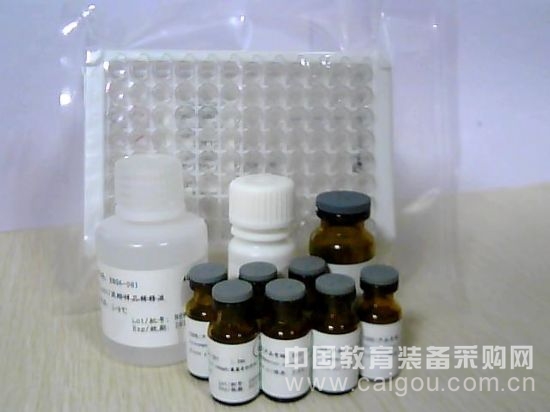ELISA kit for affecting antigen-antibody reaction factors
After the antigen specifically binds to the antibody, although it changes from a hydrophilic colloid to a hydrophobic colloid, if no electrolyte is present in the solution, no visible reaction occurs.
In order to promote the formation of precipitates or aggregates, 0.85% sodium chloride or various buffers are commonly used as diluents for antigens and antibodies. Since sodium chloride dissociates into Na+ and C1- in an aqueous solution, the charge on the colloidal particles can be neutralized, respectively, and the potential of the colloidal particles is lowered. When the potential drops below the critical potential (12-15 mV), it can cause the antigen-antibody complex to precipitate out of solution, forming a visible precipitate or agglomerate.
(a) pH
The antigen-antibody reaction must be carried out in a suitable pH environment. Proteins have amphoteric ionization properties, so each protein has a fixed isoelectric point. The antigen-antibody reaction is generally carried out at a pH of 6-8. If the pH is too high or too low, the physicochemical properties of the antigen and the antibody will be affected. For example, when the pH reaches or approaches the isoelectric point of the antigen, even if no corresponding antibody is present, non-specific aggregation of the particulate antigen is caused, resulting in a false positive reaction.
(2) Temperature
Within a certain range, the temperature rise can accelerate the movement of molecules, and the chance of collision between antigen and antibody increases, and the reaction is accelerated. However, if the temperature is higher than 56 ° C, the bound antigen antibody may be dissociated or even denatured or destroyed; at 40 ° C, the binding speed is slow, but the binding is firm and easier to observe. A commonly used antigen-antibody reaction temperature is 37 °C. Each test has its own unique optimum reaction temperature. For example, the cold agglutinin is best combined with red blood cells at around 4, and dissociated at 20 °C or higher.
In addition, proper shaking can also promote contact of antigen-antibody molecules and accelerate the reaction.

Other Wipes,Other Papers,Other Facial Tissue,Other Tissues
ShanDong YongFang Sanitary Products Co.,Ltd , https://www.sdyongfang.com